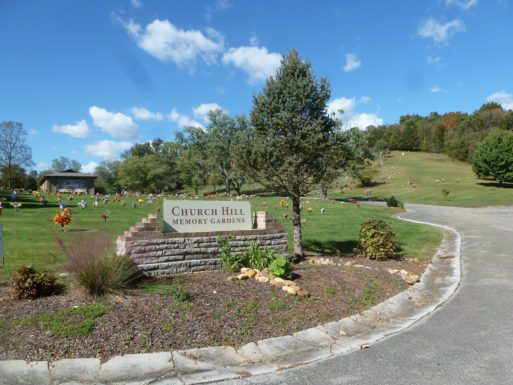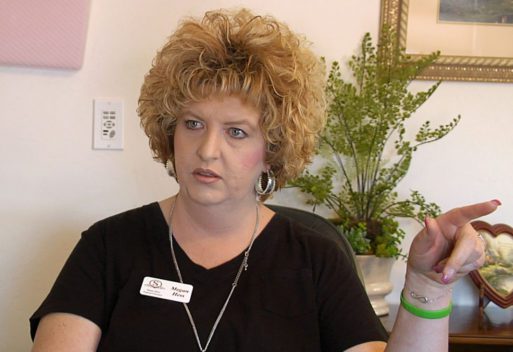 For more than a few decades, the funeral industry has been plagued with bad actors — funeral professionals who take advantage of vulnerable clients in all sorts of nefarious ways. Some techniques such as upselling are extremely common but not technically illegal as long as the client is given a general price list and informed of their consumer rights. Others actually run afoul of the Funeral Rule — a set of standards set by the Federal Trade Commission outlining how funeral directors are required to protect consumers’ rights — and state or local laws.
For more than a few decades, the funeral industry has been plagued with bad actors — funeral professionals who take advantage of vulnerable clients in all sorts of nefarious ways. Some techniques such as upselling are extremely common but not technically illegal as long as the client is given a general price list and informed of their consumer rights. Others actually run afoul of the Funeral Rule — a set of standards set by the Federal Trade Commission outlining how funeral directors are required to protect consumers’ rights — and state or local laws.
Fortunately, most funeral directors are ethical service providers, who, to the best of their ability, abide by the Funeral Rule and have their client’s best interests at heart. But, just as in all industries, there are death care professionals who consistently cut corners or blatantly break the law. Earlier this month, Connecting Directors, a media outlet that reports on funeral industry news and trends, set forth a few examples of bad apples who are still giving the profession a bad name. Here is a rundown from their Morticians Monday Morning Mashup from June 19, 2022.
Financial Irregularities
Some of the most common and most egregious examples of misconduct on the part of death care professionals is the misuse of funds held for pre-need funeral contracts and/or cemetery plots. Most (but not all) states have laws that define how such funds must be handled from the time the contract is signed until the time of the client’s death. In Tennessee, for example, state law requires that at least 20% of all funds collected by a cemetery be deposited in an improvement trust fund, which is used to maintain the cemetery land. But in June 2022, Church Hill Memorial Gardens was fined $1,400 by the state for failing to deposit the required amount for 13 contracts, and for failing to include required language in the contracts it sold. Additionally, the cemetery had allowed its registration to lapse for four months.

Church Hill Memorial Gardens Cemetery was recently fined by the state of Tennessee
Credit: finda grave.com
Church Hill Memorial Gardens was also cited for allowing the cemetery to fall into disrepair. According to state inspectors, the grounds were poorly cared for, the mausoleum was dirty and had at least one broken window, and several graves were sunken and needed to be filled in. As part of its settlement with the state, the cemetery agreed to deposit $780 (which was the amount owed on the 13 contracts) into its improvement trust account in exchange for a lesser fine.
Even more unsettling was the conduct of a former funeral director and county coroner in nearby Kentucky. Donald Clyde Creech, once the owner of the Creech Funeral Home in Middlesboro and the Bell County coroner for 30 years, was recently indicted on 38 counts of violating the trust provision of pre-need payment for funeral goods. The indictment alleges that Creech defrauded 38 different families of a total of nearly $250,000 by failing to deposit funds paid for pre-need contracts into a designated trust. Each count is a class C felony and carries a possible prison sentence of 5-10 years.
Creech is also accused of one count of theft of over $5,000 in a separate case.
Body Brokering Case Ends in a Plea Deal
In yet another bit of unsettling news, the case of Megan Hess, former owner of Colorado’s Sunset Mesa Funeral Home, ended this week with a plea deal. As SevenPonds reported in 2019, Hess was accused of selling bodies and body parts without the consent or knowledge of the next of kin. She would lie to her clients, telling them their loved one’s body had been cremated when it had actually been sold and then handing over fake “ashes” that were usually nothing more than dirt and sand. Hess was indicted in federal court in 2020 on six counts of mail fraud in regard to illegally shipping the remains of 30 people across state lines. She was also indicted for improperly transporting hazardous materials in connection with the remains of three people who were positive for hepatitis-C. If convicted, she faced up to 20 years in prison for each count of mail fraud and 5 years each for the three additional charges. The details of her plea deal haven’t been revealed.

Megan Hess before her arrest on multiple charges of mail fraud
Credit: Reuters
Hess’ mother, Shirley Koch, who partnered with her in the business, is facing similar criminal charges, but it’s unknown if she has made a deal with prosecutors at this time. Her trial is set for July 25, 2022.
In response to the Sunset Mesa scandal, the Colorado legislature has since passed several pieces of legislation aimed at preventing the tragedy from happening again. One law made it illegal for anyone holding a funeral operator’s license to also run a body-brokering business and another increased the ability of state regulators to inspect funeral homes. The third made it a felony to abuse a corpse.

 The Funeral Industry Still Has More Than a Few Bad Actors
The Funeral Industry Still Has More Than a Few Bad Actors


 “Help Me, Helen”
“Help Me, Helen”

 “As Tears Go By” by Marianne Faithfull
“As Tears Go By” by Marianne Faithfull














